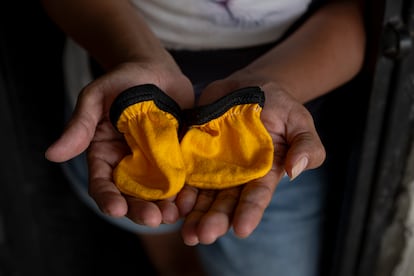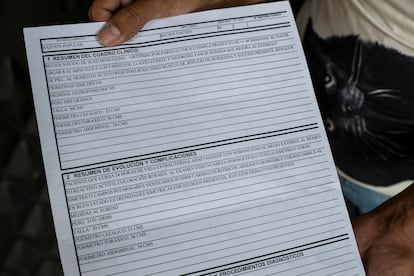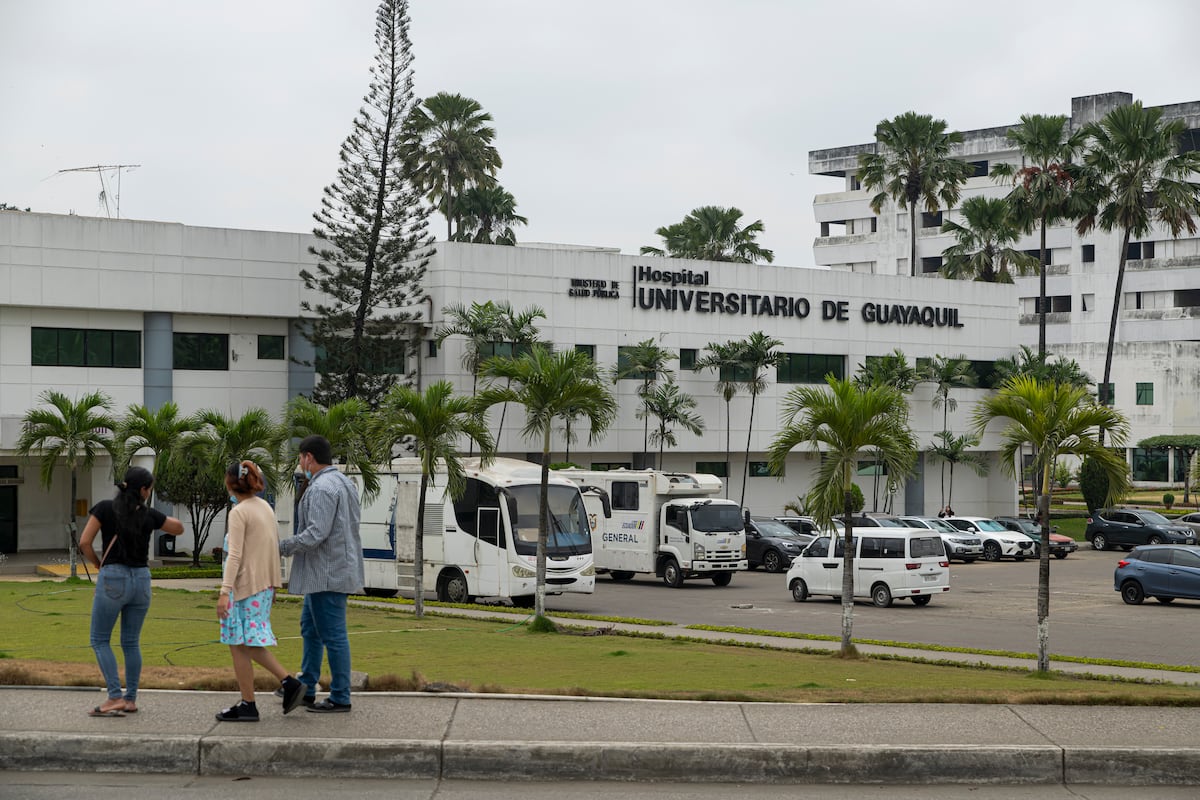Twelve babies have died at Guayaquil University Hospital since July 23, when the hospital’s authorities issued an epidemiological alert. The Ecuadorian Ministry of Health attributed the deaths to “multifactorial” causes. According to the institution, most of the deaths were premature newborns in complicated clinical condition. However, it admitted that two of them contracted a hospital-acquired infection caused by the carbapenemase-producing bacterium Klebsiellapneumoniae, whose increasing resistance to antibiotics makes it a serious threat and which spreads easily in hospitals with inadequate biosafety protocols.
Joselyn, one of the affected mothers, can’t stop reliving in her head the exact moment she handed her four-day-old son to a nurse at University Hospital, a center specializing in pediatrics. It was dawn on August 3, and the baby had begun to turn yellow. “In my desperation, I didn’t even check if the equipment was working. They took me out of the room, and a while later, they came out to tell me he had died from high bilirubin,” she says, her voice breaking. Her son had jaundice, a common condition in newborns that is rarely fatal if treated early.
 Gloves used by Joselyn’s son.VICENTE GAIBOR
Gloves used by Joselyn’s son.VICENTE GAIBOR
The baby had been born at another health center, one that only performed natural births because there were no supplies for cesarean sections. “He weighed 3.2 kilograms, was 50 centimeters long, and had a pinkish tint. He was fine,” Joselyn recalls. No one explained whether Ángel was born with jaundice or if it developed in the following days, because at the health center where he was born, he was never seen by a pediatrician or given an exam. “I was with the baby the whole time, and a pediatrician didn’t even come to discharge us, but it’s very strange that they even wrote down his blood type on the paperwork, without doing any tests,” the mother explains.
After being informed of her child’s death, she was sent to complete the paperwork to retrieve the body. While she was waiting for someone to sign the documents, the hospital notified the emergency services that the baby’s body had been abandoned. When she returned, she found a police morgue employee collecting the body. “I begged him not to take it, that I was there, that they had delayed the process because there was no one in admissions to stamp the paperwork, but they took it anyway. As if it were trash,” Joselyn recounts, her throat tight. It took several hours to retrieve it. “They had opened it to perform an autopsy on my little angel.”
The Prosecutor’s Office has opened a criminal investigation, and the Ombudsman’s Office has launched its own inquiry. Health Minister Jimmy Martin — the fifth appointed by President Daniel Noboa — requested the resignation of the hospital manager and ordered a medical audit. He also ordered psychological care for family members, but only for the parents of the two babies who died from the bacteria, excluding the rest of the affected families.
 The medical history for Joselyn’s son.VICENTE GAIBOR
The medical history for Joselyn’s son.VICENTE GAIBOR
The case has revealed the magnitude of a healthcare system on the brink of collapse. The Guayas Medical Association has asked President Noboa to declare a state of emergency in the healthcare system, warning of critical shortages of supplies and medications, especially in intensive care units. Since taking office, the government has cut more than $400 million from the healthcare budget, exacerbating a public network already weakened by the pandemic.
Noboa has not yet commented on the deaths. He has preferred to focus his attention on a demonstration he called against the Constitutional Court, which will take place on Tuesday, August 12. Members of his political party have requested permission to accompany him to demonstrate, on the same day that the National Assembly’s Children’s Commission summoned the Minister of Health to give an account of the tragedy of the 12 dead babies at the University Hospital of Guayaquil.
Sign up for our weekly newsletter to get more English-language news coverage from EL PAÍS USA Edition

